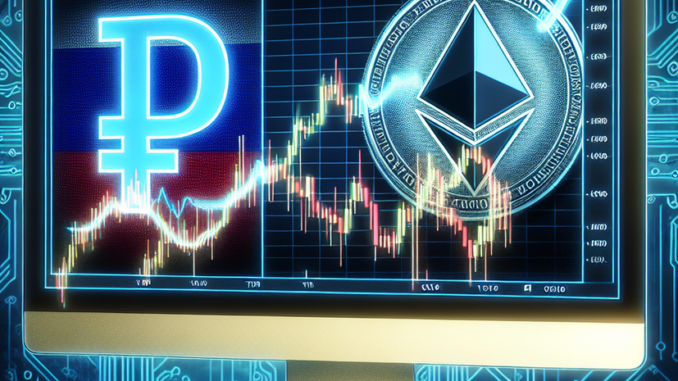
Amid escalating geopolitical tensions and the imposition of severe sanctions following the invasion of Ukraine, the Russian rouble has experienced a precipitous decline, prompting a marked shift in financial strategy. In response to significant devaluation, many Russians are turning their attention to the realm of digital assets, seeking to safeguard their finances through the acquisition of cryptocurrencies.
The Russian economy, heavily impacted by Western sanctions, has heightened the allure of cryptocurrencies as an alternative refuge. Signals of this trend are evident in data from Arcane Research, an Oslo-based digital asset analytics firm. The company has observed a pronounced increase in trading volumes between the rouble and the cryptocurrency stablecoin Tether. Bendik Norheim Schei, a representative of Arcane Research, ascribes this surge in crypto activity within Russia to the punitive sanctions, which have spurred investors to seek out more stable financial instruments, with Tether emerging as a favored option.
This pivot to digital currency is underscored by the surge in trading volume between the rouble and Tether, which reached an unprecedented $29.4 million, marking the zenith for the year. This surge is emblematic of a broader transformation in investor behavior as they adapt to the volatile geopolitical environment. Market analysts, including Tom Wilson of Reuters, are meticulously tracking these developments. Wilson’s commentary has brought to light the profound influence of global events on the cryptocurrency market, underscoring the expanding role of digital assets within the contemporary financial ecosystem.
The recent uptick in rouble-bitcoin trading, catalyzed by the Ukraine conflict, casts a spotlight on the growing synergy between traditional finance and the cryptocurrency domain. As the crisis perpetuates, the rouble-bitcoin trading volume has soared to its highest level this year, signaling an escalating interest in cryptocurrencies as a bulwark against economic fluctuations.
Exacerbating the situation, the exclusion of Russian banks from the SWIFT global payments system, a punitive measure taken by Western nations, has introduced additional strain on Russia’s financial infrastructure. This measure has compelled investors to consider alternative assets, such as cryptocurrencies, to circumvent the challenges posed by a restricted market environment. Despite the inherent market risks associated with bitcoin, some investors view it as a practical diversification strategy, particularly amidst the backdrop of geopolitical uncertainty.
The rouble’s plunge into the cryptocurrency market serves as a stark illustration of the evolving financial landscape, where digital currencies are increasingly challenging the hegemony of traditional fiat currencies. This pivot towards digital assets is reflective of a wider trend, where innovative financial solutions are being embraced as a means to contend with the unpredictability of geopolitical events.
The dramatic increase in cryptocurrency trading involving the Russian rouble is indicative of the growing prominence of digital currencies in times of economic turmoil. As the quest for stability intensifies in a climate of market disorder, the appeal of cryptocurrencies as a viable investment avenue is reinforced, signaling a reshaping of the financial sector in ways that were previously unforeseen. As these digital assets continue to gain traction, they present both opportunities and challenges, reshaping the narrative of global finance in the face of adversity.

Be the first to comment